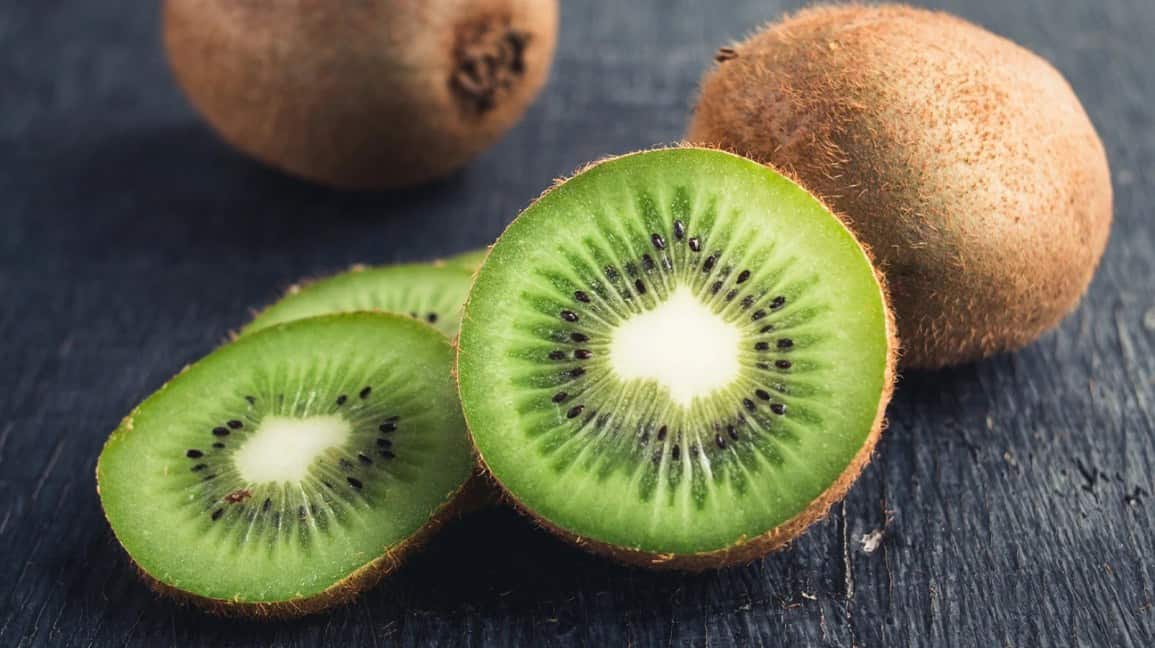Glowing with Goodness: The Surprising Benefits of Kiwi in Pregnancy
Hello lovely mamas-to-be! Are you on the hunt for the perfect pregnancy snack? Look no further than the kiwi fruit, a tangy and sweet delight that’s not only delicious but also brimming with health benefits for you and your growing baby. As you navigate through the do’s and don’ts of pregnancy eating, let’s unwrap the goodness of kiwi together!
What Makes Kiwi a Pregnancy Superfood?
Kiwi fruit, also known as Chinese gooseberry, is a small fruit with a fuzzy brown skin and bright green (sometimes golden!) flesh speckled with tiny edible black seeds. This vibrant fruit is packed with nutrients essential for a healthy pregnancy. So, why should kiwi be a staple in your prenatal diet? Let’s dive in.
Nutrient Profile of Kiwi Fruit
The kiwi is a nutrient-dense food, meaning it is high in vitamins and minerals but low in calories — a perfect combination for expecting mothers. Kiwis are an excellent source of:
- Vitamin C: This immune-boosting vitamin is vital for both mother and baby, providing antioxidant protection and aiding in the absorption of iron — a critical mineral during pregnancy.
- Folate: Also known as folic acid when added to foods or taken as a supplement, folate is fundamental in the early development of your unborn child and helps prevent neural tube defects.
- Fiber: Packed with both soluble and insoluble fiber, kiwis can help maintain a healthy digestive system and prevent the common pregnancy concern of constipation.
- Potassium: Having adequate potassium levels is essential for maintaining blood pressure, which is especially important during pregnancy.
The Power of Vitamin C in Kiwi
Did you know? A single kiwi can provide around 117% of the daily value for Vitamin C. This super vitamin serves several roles during pregnancy:
- It’s a building block for your baby’s skin, tendons, and cartilage.
- It assists in the body’s production of collagen, an important protein that helps to build various tissues and heal wounds.
- Vitamin C boosts both your and your baby’s immune system.
- It enhances your body’s ability to absorb iron, reducing the risks associated with iron deficiency anemia in pregnancy.
Integrating kiwi into your diet could be a delectable way to ensure that you and your baby are getting enough of this indispensable nutrient.
Adventures in Kiwi: How to Enjoy It During Pregnancy
Now that we know how kiwi benefits pregnancy, the next step is to integrate this exciting fruit into your diet. Kiwi can be enjoyed in a myriad of ways:
- Slice it up and eat it as is for a quick and easy treat.
- Add it to your morning yogurt or oatmeal for a refreshing twist.
- Blend kiwis into a zesty pregnancy-friendly smoothie.
- Create a vibrant fruit salad, mixing kiwi with other pregnancy-safe fruits.
- Opt for kiwi popsicles as a healthy alternative to satisfy those sweet cravings.
When choosing kiwis, make sure to pick ones that are plump and fragrant, with a slight give when gently pressed. This ensures the fruit you are getting is ripe and at its nutritional peak.
Incorporating kiwi into your pregnancy diet isn’t just beneficial; it’s a delightful journey for your taste buds too. Stay tuned for scrumptious recipes and creative ideas to get the most out of this fantastic fruit!
Remember, although kiwi is a superfood, it is essential to maintain a balanced diet. Always consult your healthcare provider before making significant changes to your diet, especially during pregnancy. Bon appétit, beautiful mamas, and keep glowing with health and happiness!

5 Things Parents Should Know When Preparing Kiwi Fruit During Pregnancy
1. Selecting and Storing Kiwis for Peak Freshness
Choosing kiwis that are ripe and storing them correctly is key to maximizing their benefits. A ripe kiwi should yield slightly under pressure and have a fragrant scent. If you buy under-ripe kiwis, place them in a paper bag with bananas or apples to hasten ripening. Store them at room temperature until they ripen and then move them to your refrigerator to preserve their freshness and extend their shelf life.
2. Safe Handling and Preparing of Kiwi Fruit
As with any fruit, good hygiene and proper handling are vital to prevent any foodborne illnesses, especially during pregnancy. Make sure to wash the kiwi thoroughly under running water before cutting into it to remove any dirt or potential residues. Cut on a clean cutting board, ideally one designated for fruits and vegetables, to avoid cross-contamination.
3. Watch for the Rare Kiwi Allergy
While kiwi is packed with nutrients beneficial for pregnancy, it’s important to be cautious if you have never eaten kiwi before as some individuals may have or develop an allergy to it. If you notice any signs of itching, swelling, or difficulty breathing after consuming kiwi, seek immediate medical attention.
4. Moderation is Key
Although kiwifruits are a superfood, consuming them in moderation is recommended. Due to their high fiber content, eating too many kiwis might lead to digestive issues like gas or bloating. It’s best to integrate kiwi as part of a diverse and balanced diet to benefit from a variety of nutrients from different sources.
5. Kiwi and Medication Interactions
Kiwi is high in Vitamin K, which can affect blood-thinning medications like warfarin. If you are on any prescribed medication, it’s crucial to discuss with your healthcare provider whether eating kiwi is safe to ensure there are no adverse interactions with your prescriptions. Always letting your healthcare professional know about your dietary habits can help to personalize your nutrition plan effectively.
See more great Things to Do with Kids in New Zealand here. For more information see here
Disclaimer
The articles available via our website provide general information only and we strongly urge readers to exercise caution and conduct their own thorough research and fact-checking. The information presented should not be taken as absolute truth, and, to the maximum extent permitted by law, we will not be held liable for any inaccuracies or errors in the content. It is essential for individuals to independently verify and validate the information before making any decisions or taking any actions based on the articles.




